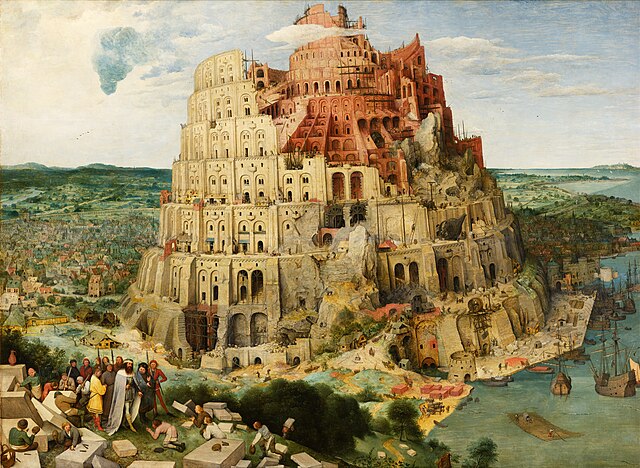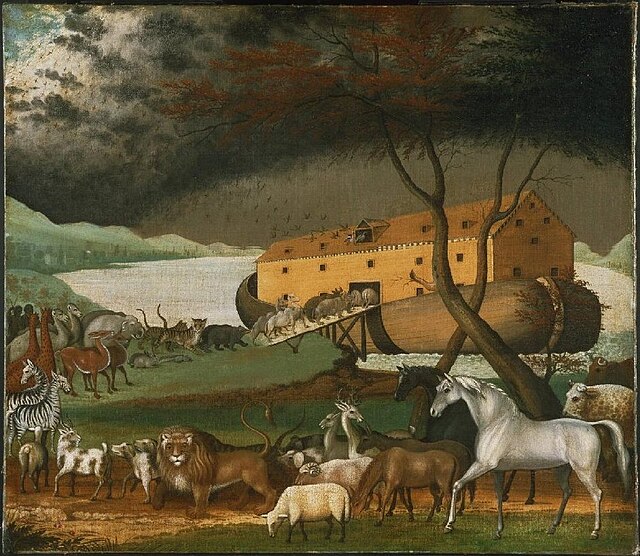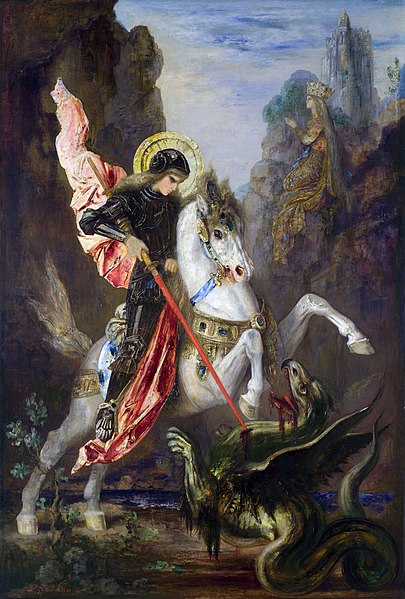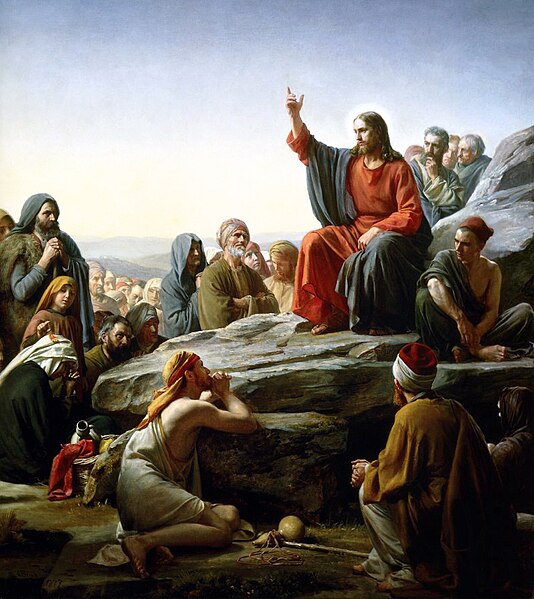Jewish mythology is the body of myths associated with Judaism. Elements of Jewish mythology have had a profound influence on Christian mythology and on Islamic mythology, as well as on Abrahamic culture in general. Christian mythology directly inherited many of the narratives from the Jewish people, sharing in common the narratives from the Old Testament. Islamic mythology also shares many of the same stories; for instance, a creation-account spaced out over six periods, the legend of Abraham, the stories of Moses and the Israelites, and many more.
The Garden of Eden with the Fall of Man. Illustration of God's creation
The Expulsion of Adam and Eve
The Tower of Babel by Pieter Bruegel the Elder (1563)
Noah's Ark, oil on canvas painting by Edward Hicks, 1846 Philadelphia Museum of Art
Christian mythology is the body of myths associated with Christianity. The term encompasses a broad variety of legends and narratives, especially those considered sacred narratives. Mythological themes and elements occur throughout Christian literature, including recurring myths such as ascending a mountain, the axis mundi, myths of combat, descent into the Underworld, accounts of a dying-and-rising god, a flood myth, stories about the founding of a tribe or city, and myths about great heroes of the past, paradises, and self-sacrifice.
Saint George and the Dragon by Gustave Moreau, 1889–90
Saint Brendan's voyage, from a German manuscript
Dante and Beatrice gaze upon the highest Heaven (The Empyrean), illustration for the Divine Comedy by Gustave Doré (1832–1883), Paradiso Canto 31.
Jesus' Sermon on the Mount depicted by Carl Bloch








